By Eirik Garnas
www.OrganicFitness.com
Everyone who’s been lifting weights for some time have inevitably heard – and most likely bought into – a lot of the gym talk and magazine wisdom surrounding training and diet. Besides learning that eating every other hour and completely destroying each muscle group once a week is the optimal way to go for muscle growth, new strength trainees usually hear about the “anabolic window” that opens up after a workout and the boost in protein synthesis and muscle growth that occur if you consume fast-absorbable protein directly after your last set. It doesn’t matter whether you’re hungry or not, just getting it down is the priority. While some trainees cling on to these notions for their entire lifting career, those who start reading research and evidence-based information quickly learn that a lot of the general beliefs about training and nutrition are either inaccurate or outright harmful. But, while a lot of the myths in the fitness community are quickly dismissed by these smart lifters, the majority still hold onto their post-workout protein shake. Getting enough protein into your body is clearly essential if you want to maximize muscle growth and strength gains, but does it really make a difference whether you get some of these essential building blocks into your body directly after training or not?
“Listen to your body”. This short phrase is often considered the first rule of training, nutrition, and health since it doesn’t really matter what researchers, coaches, and experienced athletes say is optimal if it’s not compatible with your body. Most trainees learn how to adjust their diet and training program in accordance with their recovery rate and progress, but for some reason the pre- and post-workout food intake is often set in stone.
But how did the ideas about pre- and post-workout protein consumption get so ingrained in the fitness community? Bodybuilders selling and using supplements and ads in fitness magazines and websites certainly have a significant impact, but that’s not all. Most of us have probably heard or read about the scientifically proven effects of consuming fast-absorbable protein or branched-chain amino acids within about 30 minutes after training, and on a superficial level it does seem to make sense that consuming protein in and around a training session could help you build more muscle and strength.
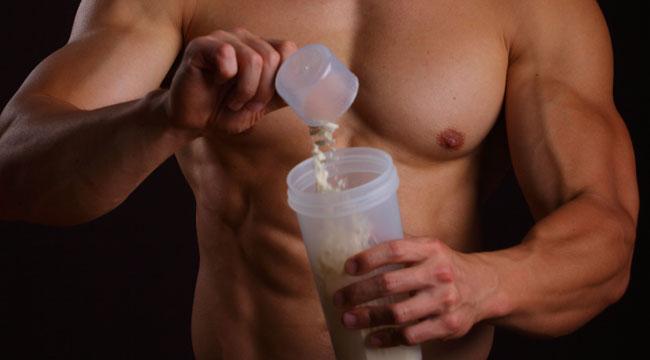
Enter protein timing
Protein timing involves the consumption of protein in and around an exercise session, and proponents of this nutritional strategy claim that this type of nutrient timing enhances strength- and hypertrophy-related adaptations.
Let’s do a quick example to illustrate the idea behind protein timing. Adam has been lifting weights for 5 years and gained a respectable amount of muscle. He typically consumes a large mixed meal 2 hours prior to his strength training sessions and then another meal 1-2 hours after his workout. In total, he eats 4-5 meals a day, and since he’s dead set on increasing his strength and building muscle, he’s consuming plenty of animal source foods. Adam doesn’t use a lot of supplements, but one of his meals of the day includes a protein shake. His average daily protein intake is 180 grams (~2 g/kg/day).
If protein timing does enhance muscle growth and strength development, Adam should see even greater progress by drinking the protein shake immediately before or after his workout! However, it’s important to note that to adequately determine the effects of pre- and post-workout protein consumption, his total energy and protein intake have to stay the same.
Protein timing (in and around a workout) doesn’t have a significant impact on muscle growth and strength development
Studies on protein timing show mixed results (1,2,3,4). It’s therefore easy for supplements manufacturer and people with a strong opinion on the matter to cherry pick a study that seems to support their position on protein consumption pre- and/or post-workout, but if we take a closer look at most of these chronic training studies there are several methodological shortcomings that limit their usefulness. Perhaps the greatest issue with a lot of the studies on protein timing is that participants who consume protein directly before and/or after their workouts often have a higher total protein intake than subjects who’re not. Since a higher protein intake is associated with increased hypertrophy (up to a certain point), this unmatched protein consumption in the treatment and control group will have a significant impact on the results. To illustrate this, let’s go back to the example with Adam and adjust his protein intake so he’s only consuming 1,4 g/kg/day of protein each day. His daily protein intake is now below what is considered optimal in terms of maximizing increases in muscle mass, and it’s therefore no surprise that adding additional protein in and around his training sessions will make him gain more muscle.
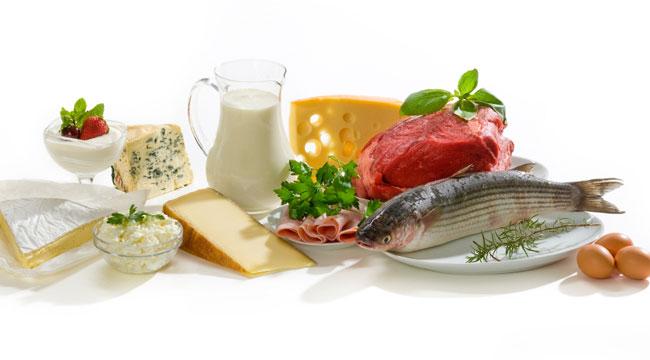
Total daily protein intake is what counts the most
Last year, Alan Aragon, Brad Schoenfeld, and James Krieger were the first to investigate the effects of protein timing on hypertrophy and muscle strength in a meta-analysis. After contrasting and combining results from several randomized controlled trials, the authors concluded the following: “In conclusion, current evidence does not appear to support the claim that immediate (≤ 1 hour) consumption of protein pre- and/or post-workout significantly enhances strength- or hypertrophic-related adaptations to resistance exercise. The results of this meta-analysis indicate that if a peri-workout anabolic window of opportunity does in fact exist, the window for protein consumption would appear to be greater than one-hour before and after a resistance training session …” (5).
The authors also note that the positive effects associated with protein timing seem to stem from a higher total protein intake in the treatment groups than in the control groups, but that more matched studies – especially in well-trained individuals – are needed to draw firm conclusions.
Overall it’s safe to say that total protein intake is far more important than protein timing when it comes to muscle and strength gains, and as long as you eat enough protein throughout the day to meet your requirements, it doesn’t seem to matter much whether some of this protein is consumed immediately before and/or after your workout or not. However, it’s important to note that these studies focus on protein intake in and around a training session, not the optimal frequency of protein-rich meals throughout the day.
But what if you combine protein with carbohydrates, does that make a difference? Most lifters typically include fruits, rice cakes, or carbohydrate supplements in their post-workout meal in an attempt to restore glycogen stores and increase protein synthesis, but the fact is that recent studies indicate that a greater insulin response following the post-workout meal doesn’t contribute to muscle protein anabolism in young adults (6). This can help explain why adding carbohydrate to a protein-rich post-workout meal doesn’t seem to enhance post-exercise muscle protein synthesis (7,8,9).
There are two primary reasons why consuming fast-absorbable protein and carbohydrates directly after a strength training session isn’t really a top priority for the average lifter (given that he gets enough protein during the day to meet his requirements and doesn’t delay his first post-workout meal for too long). First of all, the science doesn’t really show that consuming carbohydrate and/or protein directly after a workout enhances muscle growth or strength development. Second, if you’ve eaten a mixed meal 2-3 hours prior to training (like most serious lifters do), you’ve already supplied a generous dose of nutrients that are being broken down, absorbed, and metabolized both during and after your workout.
Should you include protein powders in your diet?
Since a post-workout protein shake doesn’t really seem to boost muscle growth or strength gains, you might be asking whether you will benefit from including protein shakes in your diet at all. While the answer to this question primarily depends on your ability to get enough protein from “real food”, there are also other considerations you should have in mind. Let’s briefly look at some of the pros and cons associated with the consumption with protein powders, with an emphasis on whey protein.
Pros
- Protein powders help increase your total daily protein intake
Protein shakes are clearly a convenient and cheap way of increasing the total daily protein intake, and many serious strength trainees find that they aren’t able to get enough high-quality protein into their diet without supplementing. Since sources of protein such as free-range eggs, grass-fed meats, and seafood are more expensive and require more preparation than sources of fat and carbohydrate, protein is often diluted in favor of carbohydrate and fat, and consuming protein powders after a training session or during the day can therefore be an efficient way of increasing the total protein intake. This can be especially beneficial for strength trainees who pay little attention to their overall diet and protein consumption. “High-protein” diets are often associated with bodybuilding and strength training, but are also very effective for weight loss. - Protein powders can help speed up the recovery process
Although protein timing doesn’t seem to offer any substantial benefits in terms of hypertrophy and strength, nutrient timing does affect your recovery rate and is therefore of special concern to those who perform several workouts during the same day. In general, if you’ve just finished a brutal workout and feel the need for some fast-absorbable energy, it’s probably a good idea to get some food into the system within a relatively short timeframe to kick-start the recovery process. However, there isn’t any reason to force 2 scoops of whey protein down if you’ve eaten a large mixed meal prior to training and aren’t really that hungry directly after your workout. - There are many health benefits associated with the consumption of protein powders
Besides the convenience of including protein shakes in the diet in the context of boosting protein intake and recovery, protein powders are also considered functional foods that have positive effects on health beyond basic nutrition. Most of the research has focused on the bioactive compounds and nutrient value of whey protein, which increases the antioxidant enzyme Glutathione (10) and is an abundant source of Branched-Chain Amino Acids (BCAAs). Whey protein has been shown to possess antioxidant-, antihypertensive-, antitumor-, hypolipidemic-, antiviral-, antibacterial-, and chelating- properties, which probably stem from the conversion of the amino acid cysteine to glutathione (11). Also, certain components in whey, such as lactoferrin and immunogolublins, have immune-enhancing effects (12), and several studies support a role for whey protein in the prevention and treatment of metabolic diseases (13).

While there are many health benefits associated with the consumption of protein powders, there are also some potential adverse effects
Cons
- In evolutionary terms, the consumption of a highly concentrated source of protein is a novel behaviour
Protein powders contain a higher concentration of protein than anything we’ve been eating throughout most of our evolution, but it’s unclear whether this unnatural macronutrient composition poses a problem or not. The evolutionary argument isn’t especially conclusive in terms of protein timing as our hunter-gatherer ancestors didn’t really train like bodybuilders or weight lifters. Also, they didn’t necessarily do what was optimal in terms of recovery and muscle growth. However, looking at the human diet in an evolutionary perspective can help us understand what types of foods we’re naturally adapted to eat. While we don’t need to eat like our paleolithic ancestors (or have access to the same food) to be healthy, we can learn a lot by studying the mismatch between modern sources of food and those we’ve been eating throughout most of our evolution. Both highly dense sources of carbohydrates (e.g., refined grain products, sugar) and fat (e.g., high-fat cream, vegetable oils) are recent introductions in the human diet and because of their unnatural macronutrient composition these products can potentially induce a state of chronic low-grade inflammation by promoting the absorption of endotoxins into systemic circulation. Highly dense sources of protein such as protein powders are also a very recent introduction in the human diet, and although there is currently little evidence showing that protein powders are harmful to ones health, we can’t exclude the possibility that dense sources of protein could have some potential adverse effects that haven’t yet been fully investigated. - Consumption of whey protein can increase acne severity
Besides the insulinogenic effect of whey protein, some of the hormones that are present in milk are also present in whey, and this could help explain why whey proteins seem to increase acne severity in some people (14,15,16). - What about the insulin spike?
Whey protein has a very powerful effect on insulin secretion, and although insulin sensitivity is heightened after a training session, there are few (if any) studies showing that a similar amount of protein from whey is superior to meat, eggs, and seafood after a workout. Is the potent effect on insulin secretion following consumption of whey protein beneficial, benign, or bad? We can’t say for sure at this point. Recent research questions the notion that a greater insulin response post-workout contributes to muscle protein anabolism (17), and I’m personally sceptical to the idea that a post-workout insulin spike is something to aim for. This is also supported by recent literature which shows that a post-workout protein shake, with or without added carbohydrate, doesn’t seem to enhance muscle growth or strength development. However, if you’re a big fan of protein timing it’s clearly more convenient to bring a shake than chicken and fruit to the gym. - A lot of protein powders on the market are of poor quality
Since the supplement industry is poorly controlled, a lot of protein powders contain metals and ingredients that lack safety data (18), and it can often be difficult to know whether you’re buying a high-quality supplement or not. - Allergy and intolerance
While not really a downside of protein powders themselves, it’s worth mentioning that some people experience gas, bloating, or other problems following the consumption of protein powders because they are allergic to some of the protein fractions or don’t produce the necessary enzymes to break down all of the ingredients in the supplement.
Takeaway
In conclusion, total protein intake matters a lot more than protein timing (in and around a workout). The “anabolic window” doesn’t close 30 minutes after a workout, and there’s no reason to force down protein shakes or food until you’re actually hungry. There are several considerations you should keep in mind when deciding whether you need protein powders in your diet, chief of which is whether you’re able to get enough protein from food.
About the author
 Name: Eirik Garnas
Name: Eirik Garnas
Website: www.OrganicFitness.com
![]() Besides studying for a degree in Public Nutrition, I’ve spent the last couple of years coaching people on their way to a healthier body and better physique. I’m educated as a personal trainer from the Norwegian School of Sport Sciences and also have additional courses in sales/coaching, kettlebells, body analysis, and functional rehabilitation. Subscribe to my website and follow my facebook page if you want to read more of my articles on fitness, nutrition, and health.
Besides studying for a degree in Public Nutrition, I’ve spent the last couple of years coaching people on their way to a healthier body and better physique. I’m educated as a personal trainer from the Norwegian School of Sport Sciences and also have additional courses in sales/coaching, kettlebells, body analysis, and functional rehabilitation. Subscribe to my website and follow my facebook page if you want to read more of my articles on fitness, nutrition, and health.

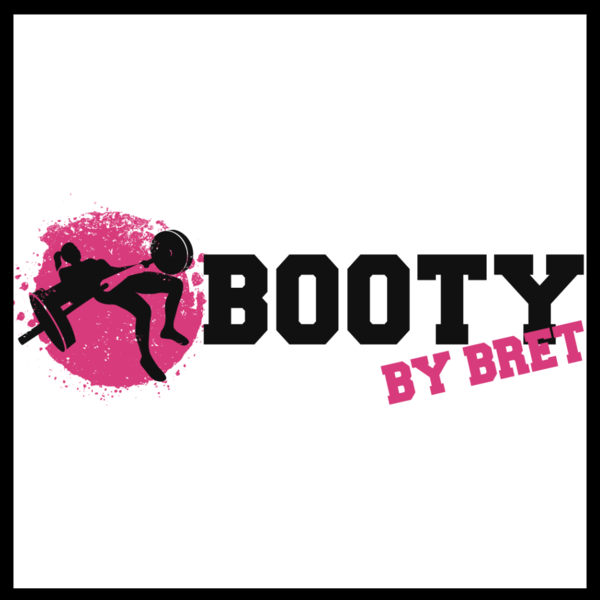
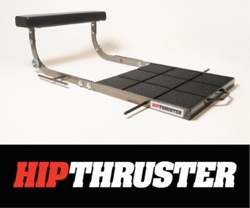
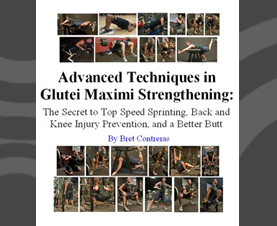
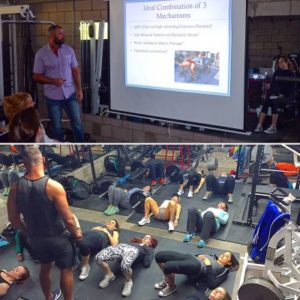
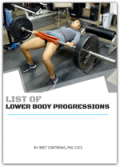
First off, awesome article. Really looked at the big picture and applied it!
In one of my classes this semester we looked into the increase of protien synthesis post workout, and our professor concluded that synthesis rates do not really increase until 2 hours post, reach highest rates at 24 hours post, and continue to be elevated until 48 hours post. I was wondering if you a) have come across similar research and b) consider this another argument against rushing to your shake post workout (so long as this information is accurate).
One of the best explanations I have read on the topic. While I use whey from time to time for convince sake I try to stick to real food sources as they are more satisfying. I have seen many novices who subconsciously think that their supplements “don’t count” toward their ultimate energy balance for the day and they end up supplementing themselves into a high BF%.
High fat is anything but novel.
Animals had fat. Animals were eaten. Their fatty tissue (which is about 80% fat) was eaten.
Hi Vlad!
Seems like you misread the phrase.
Here’s what I wrote: “Both highly dense sources of carbohydrates (e.g., refined grain products, sugar) and fat (e.g., high-fat cream, vegetable oils) …”
Highly dense sources of fat (e.g., GHEE, high-fat cream, vegetable oils) are a relatively recent introduction in the human diet. I’m not talking about high-fat diets in general.
Read my extensive article on the matter if you’re interested in more information on the subject: http://bretcontreras.com/saturated-fat-good-or-bad/
Thanks for your great, info-rich articles.
I am interested to understand what are the clues you are working on when maligning butter: http://en.wikipedia.org/wiki/Butter#History
ghee: http://en.wikipedia.org/wiki/Ghee#In_Hinduism
and cream, which butter is made from?
If tallow and marrow from animals are just as highly concentrated in fats and were highly prized by hunter-gatherers, with examples where some low-fat, high-protein cuts of meat being fed to the dogs. And estimates are that 75% of hunter-gatherer cultures drew more than 50% of their diet from animals.
I believe to put animal fats in the same breath as 100 year old vegetable oils is an unfortunate vestige of possibly the biggest attack on our health in modern times.
And if we understand that cholesterol is the precursor to steroid hormones…
I am happy not to eat these powders. Also would be interesting to find out how many shakes contain soy – a hormone interruptor: http://wellnessmama.com/3684/is-soy-healthy/
Cheers
Thanks for the thoughtful comment.
If you feel I put high-quality animal source food in the same category as vegetable oils, that was certainly not my intention. I’m a big fan of eating every part of the animal.
Most of the studies on high fat diets/meals and endtoxemia have focused on cream, vegetable oils, lard, and other foods with a very high concentration of fat. Several factors seem to impact the absorption of endotoxins associated with a high-fat meal/diet, such as prebiotics and antioxidants in the diet, the state of the gut microbiome, and the sources and quantity of fat consumed.
My intention was not to villify high fat diets. I eat a relatively high fat diet myself, with plenty of eggs, organ meats, seafood, etc.
Thanks very much Eirik. Very interesting. Yes I would imagine that we have to think twice about modern-day industrially-produced pork lard 🙂 Best,
An interesting read. I must admit I have followed the conventional wisdom without realy questioning the science. Your article has got me thinking, I will have to do more research on this topic. Although the research does seem to suggest an increase in recovery rate which could have an effect on workout frequency and thus a possible increase in hypertrophy.
This disregard of the hormonal aspects of insulin as a primary mode for nitrogen assimilation through ingested post workout protein powder or that the effects of nutrient timing are null is ridiculous. The methodologies of all the studies cited can be questioned. Tell any professional competitor that nutrient timing doesn’t matter and they will laugh in your face. Advanced exercise endocrinology should have proven the point that hormones influence body composition, especially insulin. Absorptive states are when nitrogen levels should be highest. Catabolism and anabolism occur simultaneously all the time.
Hi Alex!
Did you read the article? I actually make it very clear that nutrient timing impacts the recovery process and is of special importance to those with several workouts during the same day.
Also, read the segment on adding carbs to a post-workout meal and the studies provided. If you’re aware of any research that refutes what I’m saying then feel free to provide sources.
Scott, not Alex.
And this is why I’m a die-hard fan of yours. I am undoubtedly one of those folks who have bought into the whole “must-chug-a-protein-shake-anabolic window” concept (for fear my efforts in the gym “won’t count” if I don’t). Thank you for laying out the big picture on this topic. You have inspired me on so many levels…including my new focus of “overall protein intake” versus silly notions such as “anabolic windows”…. Thanks for delivering relevant, kick-a*s content….
Glad to hear it Sasha! On a side note, I still think you should buy the t-shirt you were talking about 🙂
Ordered it. It’s in the mail 😉
*has
Very interesting read….it would have been great to mention BCAA’s, di- and tri-peptides and these two coupled with carb sources to really cover all the bases with peri-workout nutrition.
I also have concerns about the long term regular use of a refined processed product – aka whey… What other highly refined foods taken in large quantities are considered healthy?
Just to play devils advocate however, of the 4 cited studies the 2 which used a healthy population as their study group, who could presumably weight train with greater output… The whey did produce significantly better results. You cannot then look at studies in elderly men and type two diabetics and compare apples with apples
I used those four studies to show that there’s a lot of conflicting evidence on protein timing out there, I didn’t draw any conclusions from them. Check out the meta-analysis on protein timing if you want a good overview of the research.
Great article! Really enjoying the guest posts from Eirik!
It’s refreshing to see information about macro-nutrients discussed in a non-biased way for once. You have a great voice in your articles and you present the information in a way that is fairly easy to read. You also do a great job of covering both sides of the arguments pertaining to the subject and leaving it for the readers to draw conclusions based on the information presented. You definitely have a fan here.
Thanks Mathiah!
What many coaches/staff/athletes haven’t cottoned on to as of yet with regards to many sports supplements/drinks which can benefit strength/energy levels, is that at the same time they can negatively affect/weaken/burden other parts of the body (organs, joints, tissues, ligaments, toxicating blood) etc (Internal health) leading to inefficiency, ill-health & potential injury/surgery. As an example, many people have documented/related the use of whey protein with joint problems/pain (degradation). Many that have consumed creatine supplements have documented severe tight/stiffness in joints/ligaments, leading to tears & injury.
For the EXTERNAL to function optimally/efficently, you have to get the INTERNAL functioning optimally/efficently first & foremost, that is the organs, brain, blood, joints, tissues, ligaments, bones & so on. These can’t be dogged/burdened in anyway, something easily achieved (Diet/Supplement intake). It’s like the links in a chain. All to often coaches/staff place too much emphasis/thought on how they should be developing the muscular system (links further down the chain), ultimately leaving the all important first links (Internal health) in-efficent/weak/degraded (injury).
Your only as strong/agile/fast as your weakest link, so those first links (internal aspects of the body) & the small stabilising muscles are vital to be a complete/healthy performer, then you work your way outwards (external side).
Eric, nice work. Read similar things recently and your article backs them up . well done. Got a question for you ( it maybe silly) Does protein timing have implications for fat loss? Just wondering.
Hey Shane! I don’t feel that that protein consumption immediately before and/or after a workout is especially important for people interested in fat loss. However, “high-protein” diets are great for weight loss so if protein timing leads to a higher daily protein intake then it’s beneficial.
Eirik,
Great article! What are your thoughts for those of us who like to lift after dinner? Assuming I’ve met all my macros earlier in the day, does this mean I don’t have to consume protein (in the form of supplements or food) again before bed if I’m not hungry? Any advice is much appreciated. Thanks!
I think you could have cited more appropriate research. Studies on diabetic and obese patients, or elderly men, or with completely different protocols for protein/carb/fat ratios are not comparable and also not highly relevant to say middle aged trained athletes in otherwise good health. There are a lot more studies out there that are more relevant and interesting, can you talk about these instead?
Then, that means I don’t have to take protein shakes in and/or post workout. It’s actually not necessary to take them only if I’m consuming a great amount of protein from meals. Therefore, protein shakes are not a big of a deal??
Hello,
I am also very interested in Lynn’s question about what we should do if we are one of those people who lift after dinner.
Very happy I found this. I recently switched from whey to pea protein after developing a serious intolerence to everything dairy, and pea protein tastes just awful, and it got me thinking, why waste money if I don’t actually need it? I get enough protein from my meals, I mean I take Glutamine in a drink of water or juice after a workout simply because the difference in how my body feels/recovers after is amazing. But I am so tired of protein shakes, definitely just going to stick to good old nutritious foods from now on.
Thank you so much for this article!! I decided a month ago that after 3 years of BB (body building) – hence 3 hears of buying whey protein .. that I’m done with it (buying the why – NOT the BB part – LOL). I just got tired of pumping out $40 a tub (and that’ s a cheap tub) … for something that has so much controversy as to what is in the product (hence, Body Fortress sold at Walmart and other popular brands are getting sued for amino spiking.)
What I’ve noticed in the past month is not only is my fridge WAY more full of food product (I mean, figure I spent about $80 / mo. on protein tub) but I feel better!! Even if I don’t hit 100g of protein a day for my needs … I think what I am eating in REAL food value makes up for any difference in so-called lost protein gains.
I eat egg whites (pasturized if no time for cooking) – otherwise I cook my own eggs / oatmeal / rice / beas / yogurt / cottage cheese / grass fed ground beef .. .WOW … my fridge is more full than it’s ever been. This article really helped me know I’m on the right track. Thanks!! Tampa , FL / Keri Horn
Does nobody find it strange that the people who always go against the general bodybuilding/fitness guidelines such as post workout shakes are generally average build? Eirik Garnas does not have the physique people who drink shakes are looking for. Protein and supps such as whey are taken by people who want to add mass muscle and not have a slim athletes body, hence why Eirik does not look muscle built or the general look bulkers are going for. Redundant article.
Can people build muscle without protein shakes? Yes. Do protein shakes help build more muscle faster than someone just eating regular foods? YES.
This ridiculous article is redundant in it’s arguement. If someone wants to be fit or bodybuild then it’s not vital to have protein shakes OF COURSE…. but they do significantly increase mass muscle gains compared to not drinking them. Does nobody find it strange that the people who always go against the general bodybuilding guidelines such as post workout shakes are generally average build? Eirik Garnas does not have a pro bodybuilding physique, the body which people who drink shakes are looking for. Protein and supps such as whey are taken by people who want to add mass muscle fast and not have a slim athletes body, hence why Eirik does not look muscle built or the general look bulkers are going for. Redundant article, ignorant argument. I’ve been working out 10 years and have tried without shakes and with,,,,,the results are incomparable, shakes help drastically…..especially if you dont want to eat a Steak for breakfast lunch, dinner and before bed.
Bodybuilding isn’t healthy. It’s excess. And pro bodybuilders (steroid, gut & joint abusers) appear to die way earlier than even heavy smokers.
Ehat worries me, isn’t the density of protein in a whey shake. But the heavy metals in whey and the lack of suitable regulations. But for me, the vein benefits outweigh the (yet to be proven) costs. Post workout shakes abd glutamin work for me. Creatine doesn’t work for me and it has some alarming proven side effects.
@ Adam, your fantasies are about steroid abusing genetic anomalies. Not people who drink (advertise) protein shakes.
I really like this article and appreciate you shedding light on some old beliefs (that are not entirely true). I want to gain more muscle mass but I also do not want to lose weight (I am already skinny). I am developing a workout routine with compound exercises and plan on doing them 3x a week. Do I still have to have a surplus caloric intake? I want to get my diet right so that this plan can work but hope I don’t have to change my eating habits TOO much. I eat a healthy and balanced diet. A lot of cooking.